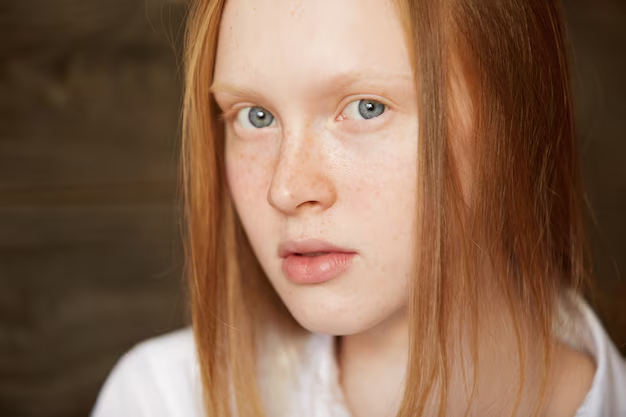Understanding Cystic Acne: Everything You Need to Know
Cystic acne can feel like a relentless and unwelcome visitor. It lurks beneath the surface, causing pain and often shattering self-confidence. Unlike typical acne, cystic acne forms deeper in the skin and refuses to budge easily. Let's dive into what cystic acne really is, its causes, symptoms, and explore ways to manage it, helping you gain a clearer perspective — and hopefully clearer skin.
What is Cystic Acne?
Cystic acne is a severe form of acne characterized by large, painful, red cysts and nodules beneath the skin. These lesions are often filled with pus but can also be hard and leave deep scars. Unlike other forms of acne, cystic acne tends to be more painful and can have a significant emotional and psychological impact due to its severity and visibility.
Why Does Cystic Acne Occur?
Understanding the root cause can be empowering. Cystic acne arises primarily due to:
- Hormonal changes: These are common during puberty, menstruation, pregnancy, or a condition such as polycystic ovary syndrome (PCOS).
- Overproduction of sebum: Excess oil production can block hair follicles and pore openings on the skin.
- Bacterial growth: Propionibacterium acnes, a bacterium that naturally lives on the skin, can overgrow and lead to inflammation.
- Genetics: If your parents had cystic acne, there's a higher likelihood that you might develop it too.
Signs and Symptoms of Cystic Acne
Recognizing the signs early can be crucial in managing cystic acne effectively. Here are the tell-tale symptoms:
- Large, painful bumps: These appear under the skin and do not respond to regular acne treatment.
- Tenderness: The cysts can feel sore if touched or aggravated.
- Redness and swelling: Cystic acne might cause surrounding skin to become red and inflamed.
- Scarring: Due to the depth and severity, cystic acne often leaves deep scars.
Common Areas Where Cystic Acne Appears
Cystic acne doesn't discriminate across regions of the skin, but it tends to favor areas with a higher concentration of oil glands. These include:
- Facial areas like the chin and jawline
- Chest and back
- Shoulders
- Upper arms
Emotional and Psychological Impact
Dealing with cystic acne is not just a physical battle; it can take a psychological toll too. Skin, being one of the main facets of personal appearance, means issues can lead to decreased self-esteem, embarrassment, and emotional stress. It's important to remember that you're not alone, and seeking support can be a vital part of managing the emotional component.
How to Manage Cystic Acne
Managing cystic acne requires a comprehensive approach that combines lifestyle changes, skincare, and medical interventions. Here's how you can take charge:
Skincare Routine for Cystic Acne
Adopting a suitable skincare routine helps manage cystic acne effectively:
- Gentle Cleansing: Use a mild, non-comedogenic cleanser twice a day to remove excess oil and debris.
- Avoid Scrubbing: Harsh exfoliation can irritate the skin further. Opt for chemical exfoliants like salicylic acid, which penetrate deeper into pores.
- Moisturize: Choose an oil-free moisturizer to maintain skin hydration without clogging pores.
- Sun Protection: Use sunscreen daily as some acne treatments can make the skin more sensitive to sunlight.
Lifestyle Adjustments
While skincare can help manage symptoms, lifestyle factors contribute significantly:
- Dietary Changes: Although no direct foods cause acne, some people find reducing sugar and dairy intake helpful.
- Stress Management: Stress can aggravate acne, so practices like yoga, meditation, or regular exercise can help alleviate symptoms.
- Healthy Habits: Stay hydrated and avoid smoking to improve overall skin health.
Professional Treatments
It's crucial to consult a dermatologist for persistent cystic acne:
- Topical Treatments: Some medications help to unclog pores and reduce inflammation.
- Oral Medication: Antibiotics or birth control pills can help regulate hormones and reduce bacteria.
- Procedures: Professional options like cortisone injections or laser therapy can mitigate severe cases.
Myths and Misconceptions
When dealing with cystic acne, it's easy to be swayed by misconceptions. Here are common myths debunked:
Myth: Cystic acne is due to poor hygiene.
- Truth: While hygiene matters, cystic acne is more about internal factors like hormones and genetics.
Myth: Popping pimples helps them heal faster.
- Truth: Popping can worsen the condition and lead to more scars.
Myth: Only teenagers get cystic acne.
- Truth: Adults of all ages can develop cystic acne due to various triggers.
Long-Term Management and Scarring
Dealing with scarring might be essential for those who have overcome cystic acne. Options include:
- Chemical Peels: Help reduce superficial scars.
- Microdermabrasion: This procedure exfoliates the top layer of skin, prompting smoother skin regeneration.
- Laser Therapy: Targets deep scars by stimulating collagen formation.
When to Seek Professional Help
Consider seeking professional attention when:
- Over-the-counter treatments fail: If typical treatments aren't making a dent in the severity.
- Pain and discomfort persist: When cystic acne affects daily life or causes physical discomfort.
- Psychological distress occurs: If acne leads to self-consciousness or emotional distress, support from a counselor may help.
Closing Perspective
Every skin journey is unique, and tackling cystic acne is no different. Equipping yourself with knowledge is the first step towards empowerment. While it may take time to see improvements, persistence, and a comprehensive approach mixing home care and professional help can yield positive outcomes.
Quick Summary
- Cystic Acne is a severe type of acne causing painful, red cysts under the skin. 🤕
- Causes include hormonal changes, excess oil, bacteria, and genetics.
- Appears on face, chest, back, and shoulders. 🗺️
- Manage with a consistent skincare routine, lifestyle changes, and professional advice. 🧴💡
- Consult a dermatologist for personalized treatment and when over-the-counter solutions fail. 🥼
- Remember the myths: Hygiene isn't the only factor, avoid popping, and it's not just a teen issue. 🚫
Taking proactive steps and seeking support can make a significant difference in managing cystic acne, leading to healthier skin and a more confident you. 🌟

